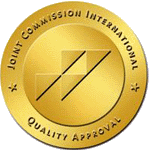World heart day

World Heart Day is a global health campaign. Its main task is to raise awareness about diseases of the cardiovascular system, their causes and ways to prevent them.
Previously, Heart Day was celebrated on the last Sunday of September, but in 2011 a permanent date was assigned to it - September 29th. In 2022, more than a hundred countries of the world will join the celebration. This important date arose at the turn of the 20th and 21st centuries at the initiative of the World Heart Federation. The idea was supported by the World Health Association (WHO) and UNESCO. Today, the holiday is celebrated in more than 100 countries around the world.
Cardiovascular disease is the world's leading cause of death, claiming 18 million lives a year. World Heart Day aims to remind that prevention is possible and necessary both globally and at the individual level.
On September 29, in countries where Heart Day is celebrated, events are held at which they talk about the dangers of cardiovascular diseases and how to avoid them. Lectures and master classes, exhibitions and forums, sports events are held. The organizers are both WHO and UNESCO, as well as local health organizations. Conferences of cardiologists are held all over the world, where specialists from different countries exchange experience and achievements.
How to avoid heart disease?
There are a number of universal recommendations that help reduce the risk of diseases of the cardiovascular system. These are simple actions that will have a beneficial effect not only on the heart, but on the whole body and general well-being as a whole.

September 29 is World Heart Day!
1. Watch your diet
Strive to reduce fast carbohydrates, salt, starchy foods, sweets and fried foods in your diet. Fast food and other unhealthy foods have a negative effect on the liver and blood vessels, which increases the risk of heart problems with age. Add more sea and river fish, nuts, whole grain bread, fresh fruits and vegetables to your usual menu. Strive for a balanced diet - do not get carried away with the consumption of the same products. Control the amount of food consumed - overeating also has a negative effect on the body.
2. Exercise regularly
For the prevention of diseases of the heart and blood vessels, physical activity is required, the heart - like any muscle - requires training. Start with daily exercise and gradually increase the load. It is important to maintain a balance - excessive efforts are more likely to harm than benefit, it is better to practice at your own, albeit low, pace, but regularly. Daily exercise will also help you lose excess weight, which increases the load on the heart.
3. Get enough sleep
Lack of sleep can seriously affect your health, leading to hypertension or a heart attack. Healthy sleep lasts 6-8 hours without interruption. To improve the quality of your sleep, avoid coffee in the afternoon, try to go to bed and wake up at the same time, exercise during the day, stop watching TV and scrolling through the social media feed before bed.
4. Give up bad habits
Alcohol abuse and smoking increase the risk of cardiovascular diseases, and also have a general negative effect on the body, so it is better to give them up altogether.
5. Learn to deal with stress
Stress is an integral part of our life, moreover, dosed, “light” stress is necessary for the body, mobilizing it. However, chronic stress and short-term severe nervous shocks increase the risk of coronary heart disease or a heart attack. It is impossible to avoid stress in everyday life, but learning to cope with it is quite possible. Meditation, breathing exercises, yoga and other relaxation techniques come to the rescue.
Source: Family website




